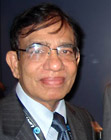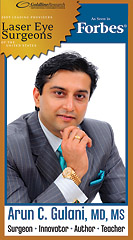
ALCOHOL AND HEALTH: WHAT’S THE STORY? – Part I

A 57-year-old man recently came to our community free clinic with heart palpitations stemming from a cardiac rhythm disorder called Atrial Fibrillation. He had stopped smoking a couple of years ago, didn’t suffer from the usual medical problems such as hypertension and diabetes, nor did he have a history of heart disease.
Asked about his alcohol usage, he readily said, “Oh, I take a couple of beers every day and may be a little more on the weekends; that isn’t much, is it?” However, he had been doing it for almost four decades, which probably contributed to his condition in large measure.
The debate on “Is moderate drinking good for health?” has been going on for some time. Who amongst us doesn’t have an occasional wine with dinner? Every time I go to a party or a celebration I always see the smiling face of the bartender, ready to serve any cocktail mix. The fellowship hour before many major social functions, happy hour in the local bars and restaurants and two-for-one discounts are all automatic invitations to indulge. Conversations become lively with a drink in your hand. During spring breaks, prom nights, frat parties and graduation celebrations there is a big flow of alcohol all around, sometimes with tragic consequences.
Alcoholic beverages have been an integral part of cultures around the world for centuries. “My doctor recommended that I can have two drinks a day,” is a common statement I hear from many patients and friends. Indeed, there are studies to support that regular moderate use of alcohol by middle-age and older people may contribute to a reduction in heart disease and to good health and longer life. Maybe so, but we also have to admit there are problems with use, misuse and abuse of alcohol including binge drinking in our society. Moreover, moderate drinking may escalate into heavy drinking and lead to “alcohol dependence” or addiction.
Let’s first review and analyze the vast amount of data on the subject, so we can make informed decisions. As I have mentioned before, 50 percent of the medical illnesses that we see today are lifestyle related.
Many studies have clearly shown that excessive use of alcohol in any form may have a detrimental effect on the body especially heart, liver, pancreas, brain and other organs. However, researchers seem to be divided regarding benefits of alcohol on physical health. In one breath they say alcohol in moderation helps the heart but in the next they say any chronic drinking -- even in moderation -- can lead to hypertension, cancer, dementia, pancreatic disease and other problems.
So who do we believe? News and research on the effects of alcohol on your body seems to be constantly changing. A little alcohol has become a big part of our lifestyle, and it would be difficult to deprive the general public of this pleasure without concrete evidence to the contrary.
“If you drink alcohol, do so in moderation. If you don't drink, don't start,” says the American Heart Association in relation to alcohol and prevention of cardiovascular disease. Moderate drinking is defined as: one drink or less per day for women and two drinks or less per day for men, in the absence of binge drinking. One drink is defined as 12 ounces of regular beer, 5 ounces of wine (12 percent alcohol), and 1.5 ounces of 80-proof spirits. However, many think it’s their sacred right to drink and that nobody should question it.
This year the World Cancer Report, issued by the World Health Organization's (WHO) International Agency for Research on Cancer, concluded that no amount of alcohol is safe, at least when it comes to cancer risk. However, it prompted a critique by the members of the International Scientific Forum on Alcohol Research that said, "WHO seems to deliberately ignore the overwhelming scientific evidence showing that light-to-moderate consumption of alcohol not only reduces overall mortality but is usually not associated with an increased risk of cancer."
So, is moderate drinking truly cardio-protective? Will we ever know for certain since there are no good clinical trials pitting one group against the other?
The pro-alcohol lobby quotes alcohol’s favorable effect on blood clotting – such as reduction in the aggregation of platelets and fibrinogen in the blood, increasing good cholesterol levels (HDL) and its anti-inflammatory effects. But the epidemiologists are not quite sure about those benefits, especially since long-term alcohol use may lead to ill health.
To be continued next month.
M.P. Ravindra Nathan M.D. is a cardiologist and Emeritus Editor of AAPI Journal. His book “Stories from My Heart” was recently released. (www.amazon.com or www.bn.com.)
Eye Care
Into the FuturEYE

In keeping with our continued trend of original thoughts and articles, I wanted to commemorate this 10th anniversary edition by summarizing in sequence and also sharing with you some of my futuristic works in progress.
So step with me into the future; a very near future.
Can you imagine “Re-Charging” your vision by a device in your pillow while you sleep? Ability to focus on different distances based on need “At your will”? Determine color and lighting as you need with your eye? Revealing identity based on eyes? Controlling computers and robots with your eyes? Could we look through a wall someday? How would you like to converse with other people using your “Vision Language”?
All of this is possible and in fact we are close to achieving these very functions and controls.
As we continue to explore frontiers beyond our planet, we realize everyday how our own body has intricacies still to be explored, functions to be discovered and ability waiting to be tapped.
Our vision one of our most important senses lends itself to discovery every day. Looking into it and looking out of it.
Let’s first summarize what have written in the past to sequence quickly through my thought process of Vision for life!
LASIK Vision Corrective Surgery
Lasik and Laser vision surgery has now reached a place where we do not cut flaps anymore. Lasers so intricately accurate and micron-specific that we can sculpt the cornea for practically any refractive error (glasses prescription) and then also make that permanent with corneal collagen crosslinking.
Also, practically any complication of Lasik can be corrected to 20/20 with Corneoplastique techniques
Presbyopia surgery (After 40 reading glasses)
Laser techniques and Intra-corneal inlays (micron-lens discs) along with scleral expansion techniques with associated intra-ocular lens based approaches will make this much frustrating vision problem a thing of the past. Patients will elect techniques to overcome this natural aging barrier and be prepared for the next 20 years with perfect vision
Cataract Surgery
Around age 60 when our lens becomes cloudy (cataract), we exchange that with a unique and custom-designed lens implant to not only help with clarity but actually enhance our vision to our brain’s full capacity and make it even more focused to our individual needs
Cataract surgery will in the near future be nearly robotic in our quest to make every surgery consistently successful and safe.
Choices of lens implants that could be pre-ordered based a patient’s lifetime history of vision and prescriptions including what goals they would like to reach for the rest of their life could make this a much “Awaited” event of life.
It still does not end here. You can re-charge your “Lens Battery” and also enhance your lens implant or modify it based on further aging changes for the rest of your life.
Diseases like Macular Degeneration, Glaucoma
Laser techniques and minimally invasive approaches along with implantable pharmaceuticals have already changed the playing fields here. Genetic manipulations and micro-robotics will further enhance the landscape with choices and even prevention in many cases in the near future.
Augmenting Glasses and Contact Lenses
Surgical breakthroughs and robotics along with pharmaceutics can lead vision to a certain point of human capacity. Specialized glasses and contact lenses could then further take it to “Beyond Human” capacities.
Using the ‘VISION’ Language With eye-tracking devices and software, people with multiple sclerosis, Parkinson's, missing limbs or spinal cord injuries will be able to use just their eyes to control their computers or even prosthetic limbs and electronic wheelchairs.
Industries worldwide, right from Google to the eye surgery companies, are focused on arranging computers around the eye (for example, Google Glass).
What in fact I believe is that our eye itself is a computer; let’s enhance it!